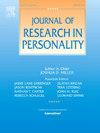多维完美主义与冒名顶替现象的元分析
IF 3.1
2区 心理学
Q2 PSYCHOLOGY, SOCIAL
引用次数: 0
摘要
本文对完美主义与冒名顶替者现象之间的关系进行了meta分析。按照预先注册的方案,系统搜索提供了25项研究(N = 12,141)和42个效应量。完美主义努力与冒名顶替现象有微小的正相关(r+=.15)。07, 0.23])和完美主义担忧与冒名顶替现象有显著正相关(r+= 0.61)。55岁,0.65])。反过来,完美主义关注对完美主义的整体效果有更大的贡献(βPS + βPC = 0.57)。54岁,0.60])。也有证据表明,在女性人数较多的研究中,与完美主义担忧的关系更大。完美主义和冒名顶替现象之间的重叠似乎主要与在他人面前表现完美的需要有关。未来的研究应探讨其发展及其中介和调节因素。本文章由计算机程序翻译,如有差异,请以英文原文为准。
A meta-analysis of multidimensional perfectionism and impostor phenomenon
A meta-analysis is provided to disentangle the relationship between perfectionism and impostor phenomenon. Following a preregistered protocol, a systematic search provided 25 studies (N = 12,141) and 42 effect sizes. Perfectionistic strivings had a small positive relationship with impostor phenomenon (r+=.15[.07, 0.23]) and perfectionistic concerns had a large positive relationship with impostor phenomenon (r+=.61[.55, 0.65]). In turn, perfectionistic concerns made a substantially larger contribution to the overall effect of perfectionism (βPS + βPC = 0.57[.54, 0.60]). There was also evidence that the relationship with perfectionistic concerns was larger in studies with more females. The overlap between perfectionism and impostor phenomenon appears to relate mainly to a need to appear perfect to others. Future research should examine their development and mediating and moderating factors.
求助全文
通过发布文献求助,成功后即可免费获取论文全文。
去求助
来源期刊

Journal of Research in Personality
PSYCHOLOGY, SOCIAL-
CiteScore
5.40
自引率
6.10%
发文量
102
审稿时长
67 days
期刊介绍:
Emphasizing experimental and descriptive research, the Journal of Research in Personality presents articles that examine important issues in the field of personality and in related fields basic to the understanding of personality. The subject matter includes treatments of genetic, physiological, motivational, learning, perceptual, cognitive, and social processes of both normal and abnormal kinds in human and animal subjects. Features: • Papers that present integrated sets of studies that address significant theoretical issues relating to personality. • Theoretical papers and critical reviews of current experimental and methodological interest. • Single, well-designed studies of an innovative nature. • Brief reports, including replication or null result studies of previously reported findings, or a well-designed studies addressing questions of limited scope.
 求助内容:
求助内容: 应助结果提醒方式:
应助结果提醒方式:


